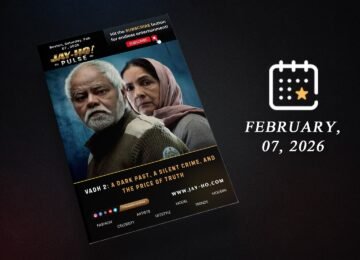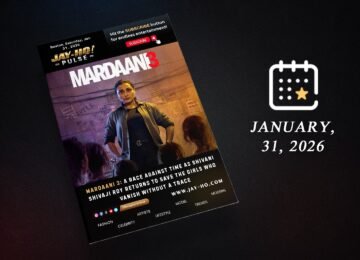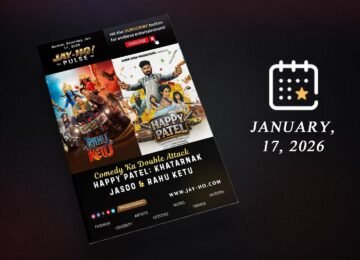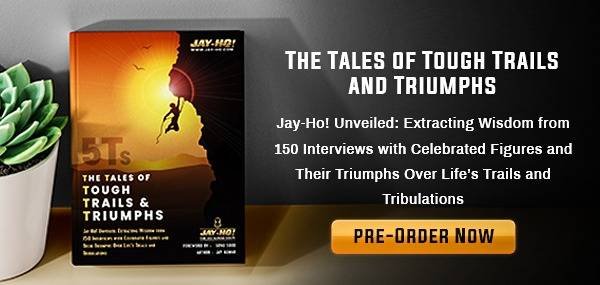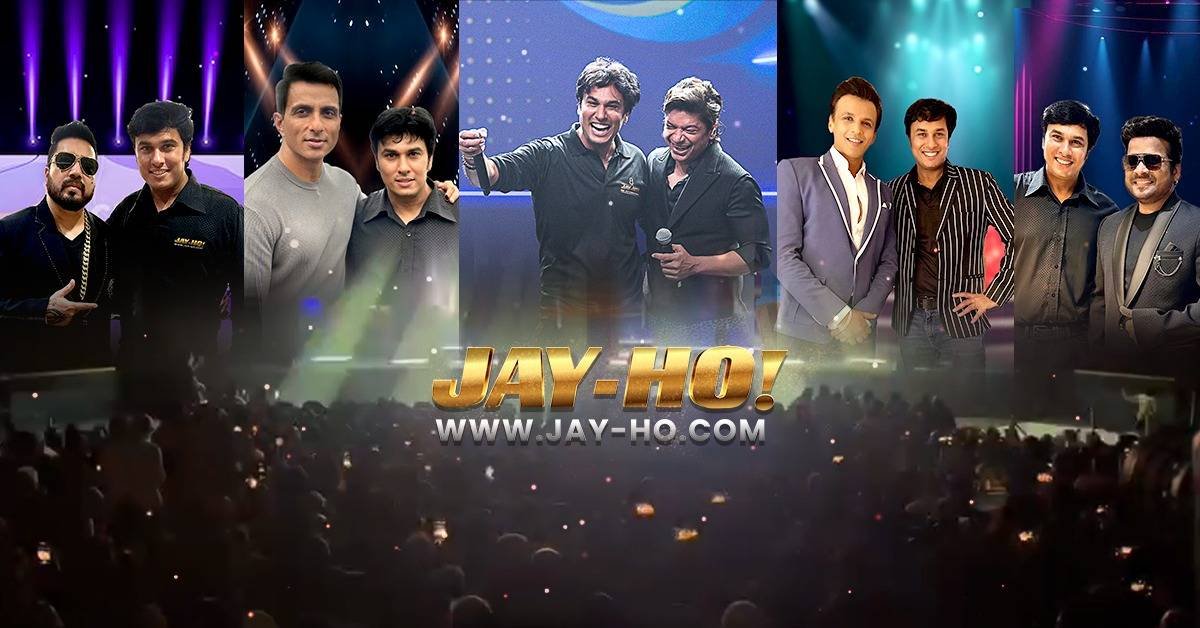In a stunning prologue that unfolds against the backdrop of India’s northern borders, a battle-worn soldier begins his journey to recovery. This quaint and peaceful village, where he convalesces, is soon thrust into chaos as its inhabitants fall victim to bullets, knives, and the unforgiving waters of a creek. The soldier, shrouded in mystery, emerges as a savior, his silhouette striking against a tumultuous sky. Though his face remains concealed beneath gauze, his eyes reveal the depths of his determination. The scene is a spectacle of epic proportions, steeped in mythology and veiled in shadows. A fiery steed streaks across the screen, leaving an indelible mark. It’s no wonder that Hideo Kojima, the renowned Japanese video game designer, couldn’t contain his excitement on social media. Odd as it may sound, “Jawan” emerges as Shah Rukh Khan’s most “Metal Gear” inspired film.
Tamil director Atlee has tantalized audiences with the prospect of collaborating with Khan since 2019. This union of a prominent southern director with a Bollywood superstar for an action-packed film laden with socio-political themes isn’t entirely novel (Atlee’s mentor, Shankar, likely paved the way). Nevertheless, beneath the surface, there seems to be more to this partnership than meets the eye. Atlee’s characters often possess multiple identities and aliases, whether concealed within a single body (as seen in Vijay’s characters in “Theri”) or distributed across several (as in “Mersal” and “Bigil”). Notably, the latter two films featured intricate narratives centered on father-son relationships. This narrative complexity aligns seamlessly with Khan’s knack for multiple-role films, a trait rivaled only by Amitabh Bachchan and Akshay Kumar in the world of Hindi cinema.
Fast forward 30 years from the explosive opening scene, and we encounter Khan again, this time portraying a quirky, wisecracking vigilante with a bald pate. He orchestrates a daring hijacking of a Mumbai metro train, aided by a squad of formidable female warriors, each with their names and a select few with elaborate backstories. Among the passengers on this train is Alia, the daughter of the cold-hearted arms dealer Kaali, portrayed with a menacing beard by Vijay Sethupathi. As the story unfolds, we discover a surprising twist—spoiler alert—Khan’s character, in the present timeline, is Azad Rathore, the warden of a high-security women’s prison who moonlights as an ethical terrorist. Adding another layer to the narrative, Azad is on the verge of marrying Narmada, the fearless negotiator he was chatting with while leading the hijack, portrayed by Nayanthara.
I won’t reveal the exact number of Shah Rukh Khans that grace the screen in “Jawan,” but rest assured, it’s a generous offering for the price of a single ticket. Khan, now 57, is an entertainer at heart, yet it’s his glimpses of menace and malevolence that have defined his most memorable performances over the years. Given his status as a successful megastar, he cannot fully embrace outright villainy, but he approaches his quasi-antihero character with undeniable relish. “When I become a villain, the heroes don’t stand a chance,” he quips, more as an expression of self-confidence than a genuine threat. While “Jawan” may not delve into the moral complexities and ambiguities of films like “Fan” or “Baazigar,” it undeniably stretches the boundaries of Khan’s acting repertoire. From the benign, upstanding citizen to the grizzled, cigar-chomping, Wolverine-esque figure, Khan covers a wide spectrum.
The action sequences in “Jawan” are as slick and convincing as one would expect from a high-budget Atlee film. Drones, helicopters, gatling guns—all the hallmarks of Hollywood-style action blockbusters make appearances. However, what truly sets these sequences apart, alongside Khan’s agile moves, are the touches of Indian authenticity seamlessly woven into the grand canvas. Notable moments include a hijacker making a getaway in an auto-rickshaw and a flashback featuring Deepika Padukone (in a significant cameo) engaging in a mud-slinging showdown with Khan. As in Atlee’s previous works, the action is anchored in a compelling sense of social justice. Khan spearheads his Clean India campaign, challenging a range of flawed institutions, from agriculture to healthcare and, more subtly and respectfully, the defense establishment. The film consistently highlights the dangers of branding individuals as ‘deshdrohi’ (traitors), a theme that resonates throughout the narrative.
“Jawan” is also a homage to the world of cinema, both Bollywood and Hollywood. Enthusiasts from both realms will revel in identifying the subtle nods and references. Before the climax reveals itself, Khan’s vigilante character bears shades of The Joker, Darkman, and even a hint of Dennis Hopper’s character from “Speed.” Kaali, the antagonist, literally dispenses red and blue pills, a clever concept symbolizing his corrupting influence on the system. A Russian mob boss dons a Bane mask, adding to the intrigue. Yet, the most endearing references are to Khan’s own filmography. Azad’s adoptive mother shares the name Kaveri Amma, mirroring Khan’s adoptive mother in “Swades” (2004). Similar nods are scattered throughout, paying tribute to films like “Main Hoon Na,” “Rab Ne Bana Di Jodi,” and, fittingly, “Duplicate.”
Of course, not everything in “Jawan” soars to great heights. The second half succumbs to Atlee’s signature melodrama, and despite Anirudh Ravichander’s efforts, the songs feel somewhat generic. Arijit Singh’s “Chaleya” is particularly forgettable, although a superior Arabic version can be found on YouTube. However, Vijay Sethupathi shines in the later scenes, unleashing his wild side and providing plenty of entertainment. Nayanthara, in her role, underplays the traditional heroine archetype, portraying a character less enamored with Khan than the film might suggest. Nonetheless, the audience remains utterly captivated by “Jawan’s” gripping narrative.



